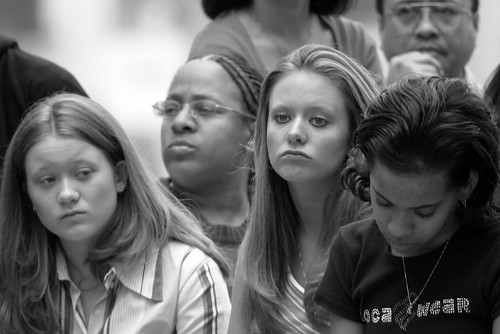For today a poem titled “America” by my favorite poet Tony Hoagland…
America
Then one of the students with blue hair and a tongue stud
Says that America is for him a maximum-security prison
Whose walls are made of RadioShacks and Burger Kings, and MTV episodes
Where you can’t tell the show from the commercials,
And as I consider how to express how full of shit I think he is,
He says that even when he’s driving to the mall in his Isuzu Trooper with a gang of his friends,
letting rap music pour over them
Like a boiling Jacuzzi full of ballpeen hammers,
even then he feels Buried alive,
captured and suffocated in the folds Of the thick satin quilt of America
And I wonder if this is a legitimate category of pain,
or whether he is just spin doctoring a better grade,
And then I remember that when I stabbed my father in the dream last night,
It was not blood but money That gushed out of him, bright green hundred-dollar bills
Spilling from his wounds, and—this is the weird part—,
He gasped “Thank god—those Ben Franklins were Clogging up my heart—
And so I perish happily, Freed from that which kept me from my liberty”— .
Which was when I knew it was a dream,
since my dad Would never speak in rhymed couplets,
And I look at the student with his acne and cell phone and phony ghetto clothes
And I think, “I am asleep in America too, And I don’t know how to wake myself either,”
And I remember what Marx said near the end of his life:
“I was listening to the cries of the past,
When I should have been listening to the cries of the future.”
But how could he have imagined 100 channels of 24-hour cable
Or what kind of nightmare it might be
When each day you watch rivers of bright merchandise run past you
And you are floating in your pleasure boat upon this river .
Even while others are drowning underneath you
And you see their faces twisting in the surface of the waters
And yet it seems to be your own hand
Which turns the volume higher?











